Cottonmouth (Agkistrodon piscivorus)

| Croatan National Forest, Craven Co., NC 8/28/05. |
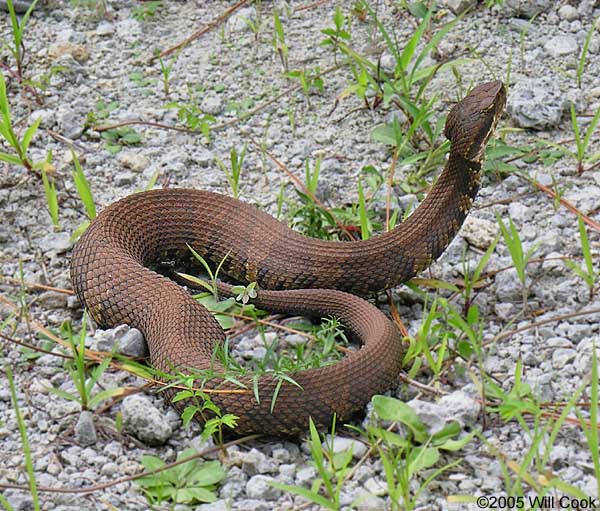
| The Cottonmouth, commonly called "Water Moccasin", is one of our most venemous snake species. They have a mean disposition and don't hesitate to strike when cornered. Fairly common in wet habitats of the Coastal Plain, but contrary to popular belief, Cottonmouths do not occur in the Piedmont or Mountain regions of North Carolina, except at the edges of the Coastal Plain (Warren and Wake Cos.). Normally found in or near water, this snake was cruising down a road in the Croatan National Forest, Craven Co., NC 8/28/05. It didn't seem to appreciate us stopping to take its picture. |
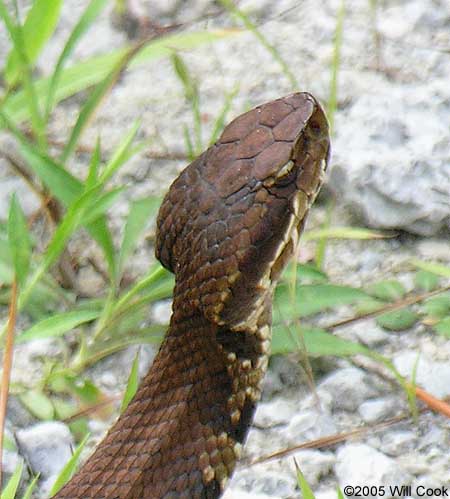
| Note the triangular-shaped head and vertical slits in the iris of the eye. These help separate Cottonmouth from the common and non-poisonous (but mean-tempered) Water Snakes (Nerodia spp.), particularly the flat-headed Brown Water Snake (N. taxispilota) of the Coastal Plain. People who report seeing "Water Moccasin" in the Piedmont usually have actually seen a Northern Water Snake (N. sipedon). Also compare with Banded Water Snake (N. fasciata). After we left this Cottonmouth, it continued on its way. We saw it again a half hour later, a hundred yards or so down the road. It may have been heading to the nearest creek, a quarter mile further on. Croatan National Forest, Craven Co., NC 8/28/05. |
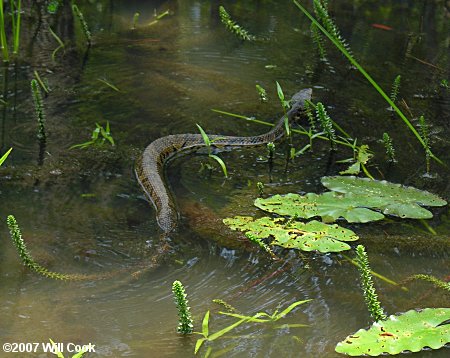
| Cottonmouths are strong swimmers. Weymouth Woods State Park, Moore Co., NC 7/1/07. |
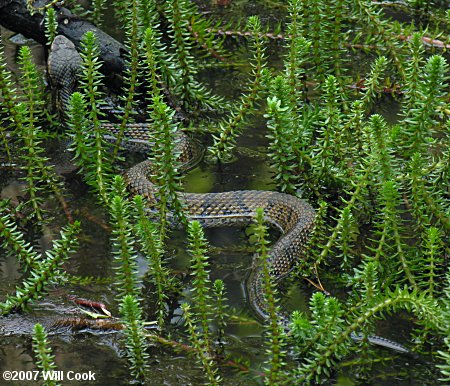
| Weymouth Woods State Park, Moore Co., NC 7/1/07. |
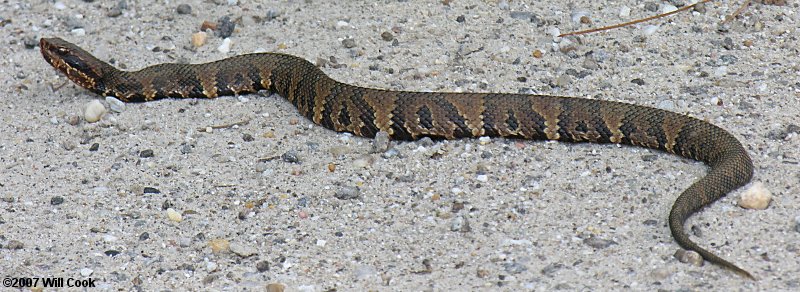
| We found this young Cottonmouth crossing the road near Rimini, SC. Young have a bolder pattern than adults and the very young have yellow-tipped tails. You can see just a hint of the yellow tip on this individual, when viewed at full resolution. Clarendon Co., SC 6/14/07. |
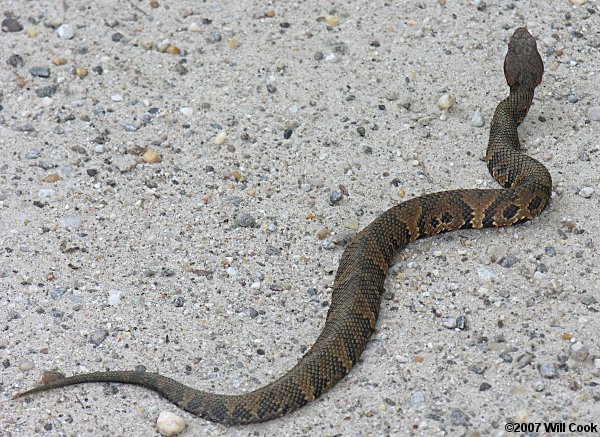
| Clarendon Co., SC 6/14/07. |